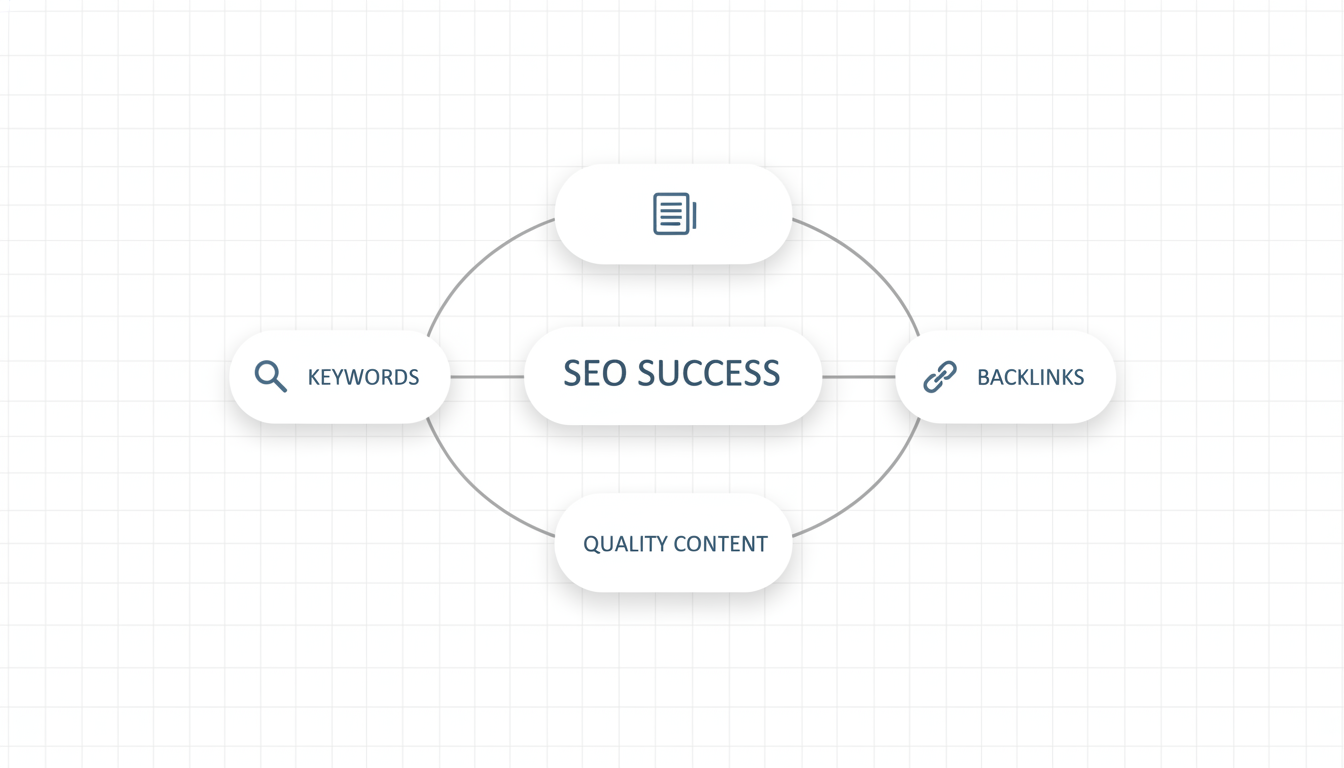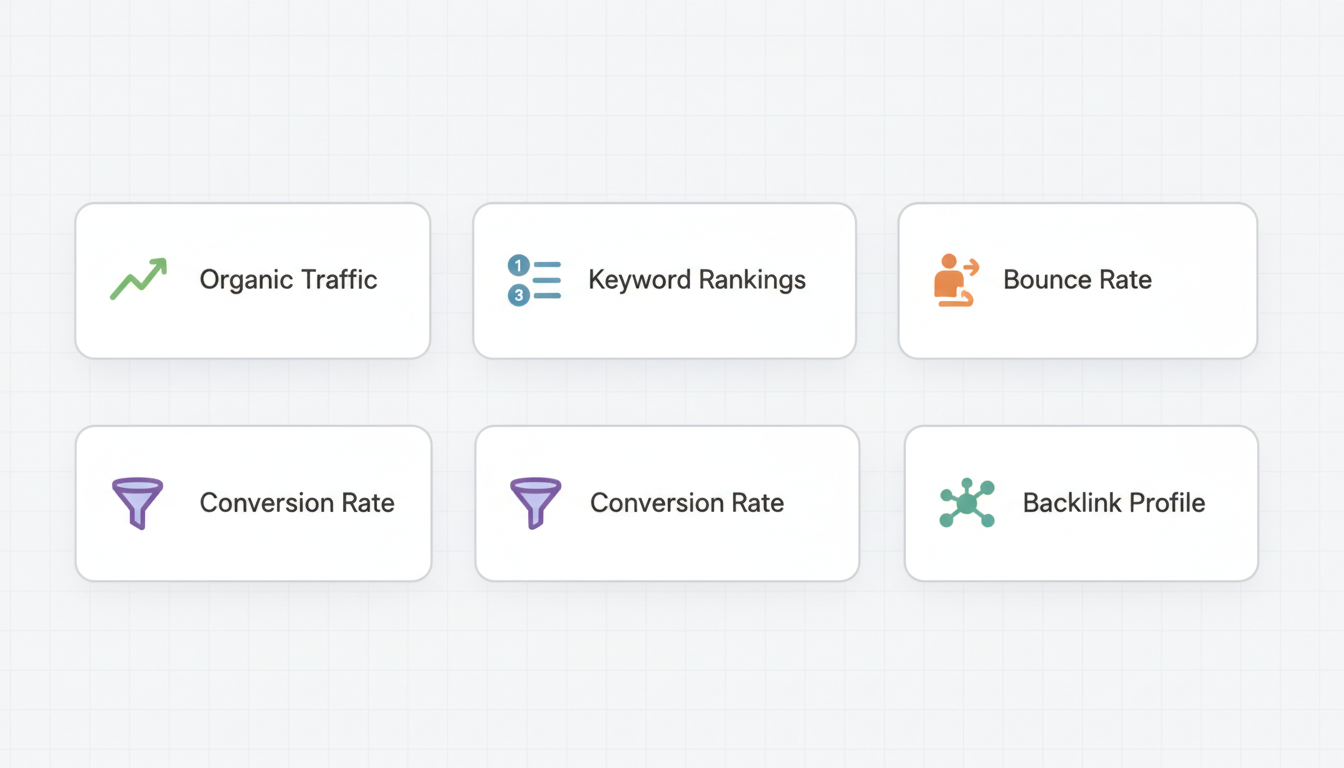In today's digital landscape, search engine optimization (SEO) has become an essential aspect of every startup's marketing strategy. In order to thrive and compete in the online market, startups need to understand and implement the basics of SEO effectively. This beginner's guide will break down the fundamental concepts of SEO and provide insights into how startups can utilize it to increase their online visibility and drive organic traffic to their websites.
Before delving into the core elements of SEO, it's crucial to grasp the significance of incorporating SEO strategies into your startup's marketing efforts. SEO refers to the process of optimizing your website to rank higher in search engine results pages (SERPs), making it easier for potential customers to find you online.
When done right, SEO can generate targeted organic traffic, improve brand visibility, and boost your conversion rates. For startups, this can be a game-changer, as it allows them to compete with established players in their industry and reach the right audience without spending a fortune on advertising.
SEO is the practice of optimizing various elements of your website so that search engines recognize its relevance to certain topics or keywords. Search engines, such as Google, use complex algorithms to determine which websites are most relevant to a user's search query. By understanding and implementing SEO techniques, you can improve your website's chances of ranking higher in search results and attracting quality organic traffic.
Implementing SEO involves a range of strategies, including keyword research, on-page optimization, link building, and technical optimization. By carefully selecting and incorporating relevant keywords into your website's content, meta tags, and URLs, you can signal to search engines that your website is a valuable resource for users searching for those specific terms.
Furthermore, SEO also involves optimizing the technical aspects of your website, such as improving site speed, ensuring mobile-friendliness, and enhancing user experience. These technical optimizations not only improve your website's chances of ranking higher but also provide a seamless browsing experience for your visitors.
Without proper visibility, startups can struggle to gain traction in the digital landscape. SEO plays a crucial role in enhancing a startup's online visibility by ensuring that its website is well-optimized for search engines and ranks prominently in search results.
By appearing in the top positions of SERPs, startups can attract a larger share of organic traffic, as most users tend to click on the top results. This increased visibility not only drives more traffic to the website but also builds brand recognition and establishes the startup as an industry authority.
Moreover, SEO is not limited to optimizing your website for search engines alone. It also involves leveraging other online platforms and channels to increase your startup's visibility. This includes optimizing your presence on social media platforms, creating high-quality content that resonates with your target audience, and engaging in influencer marketing to expand your reach.
By implementing a comprehensive SEO strategy, startups can position themselves as leaders in their industry, gain a competitive edge, and attract a steady stream of organic traffic that is more likely to convert into loyal customers. In a crowded online marketplace, SEO is a powerful tool that can help startups stand out and thrive.
Successful SEO involves a combination of various elements and strategies. Understanding these core elements is essential for startups to lay a solid foundation for their SEO efforts.
When it comes to SEO, there are several key factors that play a crucial role in determining a website's visibility and ranking on search engine results pages (SERPs). Let's take a closer look at these core elements and explore how startups can leverage them to improve their online presence.

Keywords are the foundation of SEO. These are the words or phrases that users type into search engines when looking for information, products, or services. Startups need to identify and target relevant keywords that align with their target audience's search intent and integrate them strategically into their website's content.
However, it's not just about stuffing keywords into your content. Search engines have become smarter and now prioritize user experience. Startups should focus on creating high-quality, informative content that naturally incorporates relevant keywords. By striking the right balance between optimization and user experience, startups can enhance their chances of ranking higher in search results.
One effective way to identify suitable keywords is by utilizing keyword research tools. These tools provide insights into the search volume and competition level of specific keywords, helping startups make informed decisions about which keywords to target.
Quality content is an integral part of any successful SEO strategy. Startups need to create informative, engaging, and relevant content that not only caters to their target audience but also aligns with search engines' guidelines.
Well-crafted content helps establish your startup as a trustworthy source of information and encourages users to stay on your website longer, reducing bounce rates. It's important to optimize your content for target keywords by incorporating them naturally throughout the text, headlines, and meta descriptions.
In addition to keyword optimization, startups should focus on creating evergreen content that continues to provide value over time. This not only increases the chances of attracting backlinks but also improves search engine rankings. By consistently producing high-quality content, startups can position themselves as industry leaders and attract a loyal audience.
Backlinks play a crucial role in SEO. These are links from other websites that direct users to your website. Search engines view backlinks as a vote of confidence in your website's content and rank pages with higher-quality backlinks higher in search results.
For startups, acquiring high-quality backlinks should be a priority. These backlinks should come from relevant and authoritative websites within their industry. Building a strong backlink profile can be achieved through various strategies such as guest blogging, content outreach, and building relationships with influencers or industry experts.
It's important to note that the quality of backlinks is more important than the quantity. Focus on building relationships and earning backlinks from reputable sources rather than resorting to black hat techniques that may result in penalties from search engines.
By understanding the core elements of SEO and implementing effective strategies, startups can improve their online visibility, attract organic traffic, and ultimately grow their business.
As startups delve deeper into SEO, they will come across two distinct categories: on-page and off-page SEO. Understanding the difference between these two is vital in optimizing your website effectively.
When it comes to optimizing your website for search engines, there are various strategies and techniques that can be employed. Two key areas that require attention are on-page SEO and off-page SEO. Both play a crucial role in improving your website's visibility and driving organic traffic.
On-page SEO refers to optimizing the elements on your website itself. This includes optimizing title tags, meta descriptions, headers, URLs, and body content with relevant keywords. On-page optimization also involves improving website speed, mobile-friendliness, and user experience.
One of the fundamental aspects of on-page SEO is keyword optimization. By conducting thorough keyword research, startups can identify the most relevant and valuable keywords to target. These keywords should then be strategically incorporated into the various on-page elements mentioned above.
Startups should ensure that their website is well-structured, easy to navigate, and provides valuable information to visitors. A well-structured website not only helps search engines understand the content better but also improves user experience. Additionally, optimizing images, using internal links, and incorporating schema markup can further enhance on-page SEO efforts.
Off-page SEO focuses on improving your website's reputation and authority through external factors. While on-page SEO focuses on optimizing the website itself, off-page SEO involves activities that take place outside of the website.
One of the primary off-page SEO strategies is building high-quality backlinks. Backlinks are links from other websites that point to your website. Search engines consider backlinks as votes of confidence, indicating that your website is trustworthy and valuable. Acquiring backlinks from authoritative and relevant websites can significantly impact your website's search engine rankings.
In addition to backlinks, off-page SEO also involves social media signals, brand mentions, and online reviews. Social media signals, such as likes, shares, and comments, can indicate the popularity and relevance of your content. Brand mentions, whether in articles, blog posts, or social media posts, can contribute to your website's credibility. Positive online reviews can also boost your website's reputation and attract more visitors.
Startups can enhance off-page SEO by actively engaging with their target audience on social media platforms. Building relationships with influencers in their industry can also help in gaining exposure and acquiring valuable backlinks. Seeking opportunities for guest blogging or contributing to industry publications can further establish your authority and increase your website's visibility.
In conclusion, both on-page and off-page SEO are essential components of a comprehensive SEO strategy. By optimizing your website's on-page elements and actively working on improving its reputation and authority through off-page activities, startups can increase their chances of ranking higher in search engine results and attracting organic traffic.
Implementing effective SEO techniques requires the right set of tools. Startups can leverage various SEO tools to analyze their website, track keyword rankings, monitor backlinks, and identify areas for improvement.
Several SEO tools are available in the market to assist startups in their optimization efforts. Some popular tools include Google Analytics, Google Search Console, SEMrush, Moz, and Ahrefs. These tools provide valuable insights into website performance, keyword research, competitor analysis, and technical SEO aspects.
Startups should explore different tools to determine which ones best suit their specific needs and budget. Investing in reliable SEO tools can significantly streamline your optimization efforts and yield better results.
Besides using the right tools, startups should employ proven SEO techniques to optimize their website effectively. This includes conducting thorough keyword research, optimizing on-page elements, creating high-quality content, building quality backlinks, and utilizing social media platforms strategically.
Additionally, staying updated with the latest SEO trends and algorithm changes is vital to ensure your optimization efforts remain effective. Attending industry conferences, joining online communities, and following reputable SEO blogs and forums can help you stay informed and adapt your strategies accordingly.
Measuring the success of your SEO efforts is crucial to determine the effectiveness of your strategies and make informed decisions for future optimization. Various key metrics can be monitored to track the performance of your website and identify areas for improvement.

Some essential SEO metrics include organic traffic, keyword rankings, bounce rates, conversion rates, and backlink profile. By monitoring these metrics, startups can gauge the impact of their SEO efforts and identify any issues or areas that require attention.
It's important to analyze these metrics regularly and compare them over time to get a holistic view of your website's performance. This data can help startups identify trends, adjust their strategies, and improve their overall SEO performance.
Interpreting SEO reports and analytics is crucial to extract meaningful insights from your data. Startups should familiarize themselves with tools such as Google Analytics, which provides detailed information about website traffic, audience demographics, user behavior, and conversion rates.
Analyzing this data allows startups to identify which SEO tactics are driving results, which keywords are performing well, and which pages need improvement. By understanding and interpreting these reports, startups can make data-driven decisions and continually optimize their SEO efforts.
To sum up, understanding the basics of SEO is essential for startups aiming to establish a strong online presence, attract organic traffic, and stand out in a competitive digital landscape. By implementing effective SEO techniques, startups can enhance their website's visibility, improve their search engine rankings, and ultimately, achieve long-term success.
By submitting this form, you agree to our Privacy Policy and Terms & Conditions.